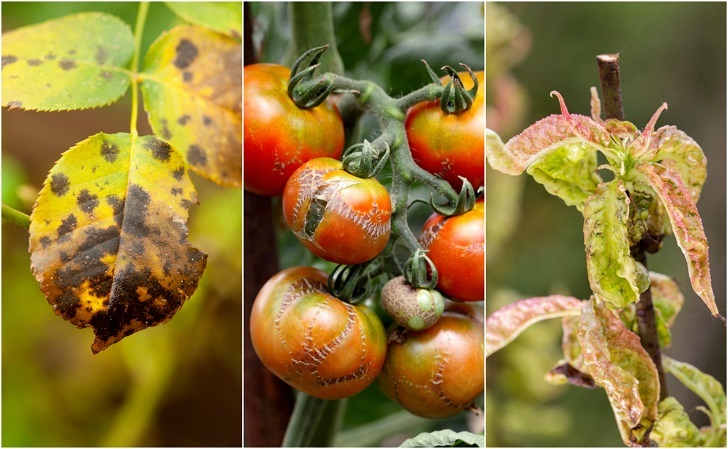Gardening Tips: Disease Management for Organic Gardening

Plant diseases occur in well-managed organic gardens just as they do in any other crop production system. Vigorous plants growing in healthy soil may be less compromised by infections in some instances than stressed or injured plants, but developing and carrying out plant disease management plans is a key step in successful organic gardening.
Understanding the life cycle of plant pathogens and their seasonal disease cycles helps in understanding what steps (rotation, sanitation, resistant varieties, irrigation management, etc.) are effective in reducing the occurrence of specific diseases.
- Sanitation
- Removing and destroying the infected plant material can limit the production of pathogens and the incidence of disease on new plants in the future. The infected plants can be burned, buried by tillage or composted (at temp. Above 130 degrees F).
- Crop rotation and mulching
- These two strategies can also greatly reduce the incidence of many soil-borne diseases, even in small gardens, because they prevent the build-up of large populations of pathogens.
- Certified seeds
- Purchasing seed that is certified to be disease free is the most common way to avoid using infected seed.
- Disease-resistant cultivars
- Using disease-resistant cultivars can be especially important for organic gardeners because there are very few OMRI*-approved fungicides available for use to prevent or slow disease outbreaks in organic fruits and vegetables. Vegetable seed catalogs provide information on disease resistance for specific cultivars.
- Cultural practices
- Wet soils and wet stems allow the development of many diseases. Trickle instead of overhead irrigation, spacing and staking or trellising plants improves the airflow around the plants and reduce the foliage and fruits contact with soil, and pruning perennial fruits to allow light penetration and air movements to enhance the drying of foliage.
Note: The Organic Materials Review Institute (OMRI) is a private, nonprofit organization that determines whether or not a product qualifies as organic under the USDA’s National Organic Program (NOP).
Reference
University of Illinois Extension. (2017). “Master Gardener Manual”
